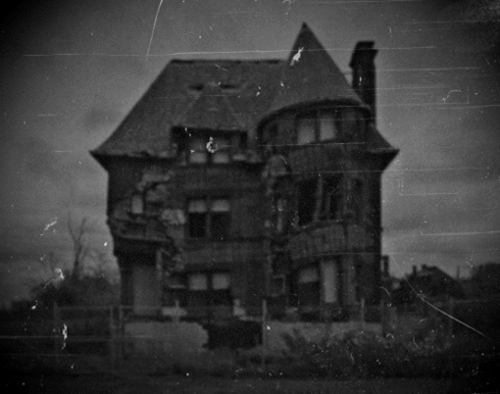Buyer boo-ware: What happens if you buy a haunted house?

There are many things buyers should consider when purchasing a new home – is it close to their work? A good school? What’s its walk score? But should a property’s past be considered as well?
If living in a house that is rumoured to be haunted, or where a traumatic death has occurred, might bother you, then yes, you should ask up front about the home’s history. There is no law in Canada that states sellers must disclose information regarding past events, so it’s up to the buyer to protect themselves.
“The law basically says to a buyer, ‘buyer beware.’ Do your homework; sellers don’t have to disclose it,” says Mark Weisleder, a Partner at Real Estate Lawyers.ca LLP, a real estate law firm in Ontario.
He does say that real estate agents, under their own code of ethics, might have to disclose whether a home has a troubled past. However, buyers nervous about an unsavoury history affecting their property’s worth should protect themselves by looking into it on their own.
Weisleder advises buyers to protect themselves in four ways:
Research the home online: “Google the property address. If there was a news story about a house, whether it’s haunted or the site of a murder, it might be somewhere on the Internet. So that’s one way, to Google the property, I always tell people to do that.”
Use tools specifically designed to highlight stigmatized properties: “There is a website called housecreep.com and they seem to be gathering all kinds of information on homes and if you go to the website and you just type in the address it will let you know if there was some kind of a crime committed on the property.”
Chat up the neighbours: “I always tell people, if possible, walk the neighbourhood because most neighbours know (history). If you point to a house and say ‘I’m interested in that house. Have you heard anything about that house?’ It’s likely, if there’s something going on, the neighbours will tell you. The problem is if you’re in a bidding war you might not have time to walk the neighbourhood.”
Put it in writing: “Put in the contract that the seller has no knowledge of any murder, suicide, or whatever paranormal activity, during their period of ownership, because if you put it in the contract then the seller has to answer truthfully. And if they lie then you could sue them later.”
Events such as murders and suicides, which could lead people to believe a home may be haunted, can affect the market value of a property. This can be especially true if a traumatic event at the home was well publicized.
“To give you an example of the Bernardo house in St. Catherines — agents still disclose to buyers what happened and it’s been over 20 years,” says Weisleder. “That house was demolished and a completely new house was rebuilt. If memory serves me correctly they even gave it a different address because it was on a corner. Yet still, the agents will disclose this because of the horrible nature of that crime.”
According to Weisleder, laws regarding disclosure in real estate differ greatly in the United States.
“In the U.S. there are laws that say if you know a murder or suicide happened in the house within the past three years that the seller is obligated to disclose it. That’s on the books in about half of the United States, so they’ve already turned their minds to it. Here in Canada there is no such law.”
Even though sellers in Canada have no obligation to disclose a history that might spook prospective buyers, Weisleder advises them to not stay silent on this matter.
“When people ask me about murders in their cellars I say ‘disclose’ because if it’s not that hard for people to find out anyways, by either checking online or with neighbours, it makes you look dishonest — as if ‘if he’s covering up this, who knows what else he’s covering up.’”
But what if you’ve found out too little too late and you’ve bought a home that sends chills up your spine?
Rachel Cross, founder of The Paranormal Seekers, a paranormal investigation team in the Durham Region, says if there’s a presence in your home it’s probably just a former owner who doesn’t want to move out yet.
“It’s not like TV or Hollywood, the ghost isn’t trying to kill you, it’s not trying to take your soul,” she says. “A lot of the times, I’d say, it was somebody’s house, they’ve lived there forever, and they still think it’s theirs.”
Cross founded The Paranormal Seekers in 2004 and since then she and her team have investigated countless residential properties. Despite their numerous clients, Cross says hauntings are still kept quiet.
“A lot of people still don’t like to talk about it. It’s still very hush-hush in some places.”
Cross, like Weisleder, encourages people to do their research when approaching a new home.
“Research — it’s the number one thing in our group that we do is research. And it’s easy, you just go to the library, land registries, town halls, stuff like that. As long as you know what you may be getting into.”
The Paranormal Seekers may research a home’s past, and spend time investigating the property personally, but they do not clear houses if they find sufficient indication of a haunting. In that case, they refer people to mediums or other spiritualists that can help the homeowner with a cleansing.
“We always tell people to trust their gut instinct because that’s the best thing for them,” says Cross.

 Yahoo Finance
Yahoo Finance 